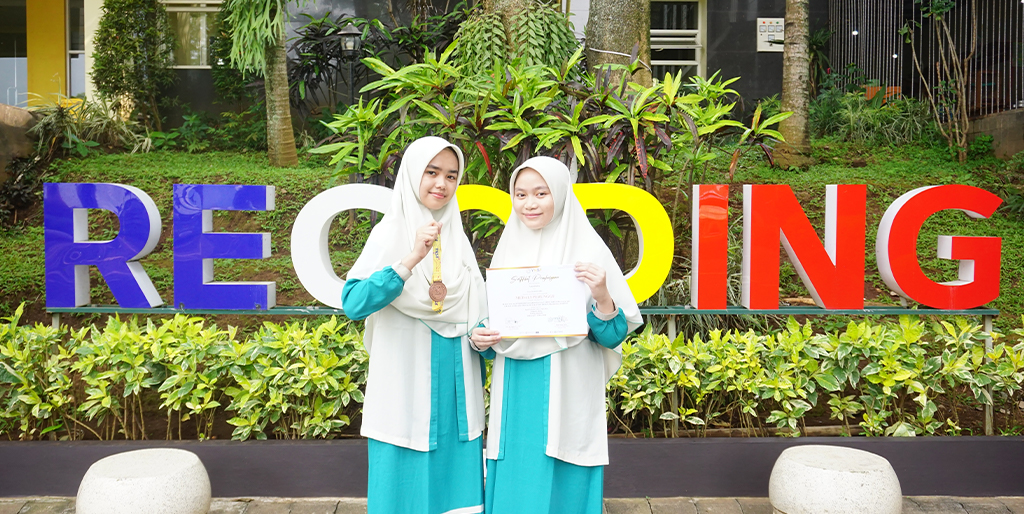Spider-web Ointment for Diabetic Treatment Leads Thursina IIBS Students to Win Gold at 2024 YNSF
Alindita Zahra and Nabila Zhafira, two 12th grade students at Thursina International Islamic Boarding School (IIBS), won the coveted gold medal at the Youth National Science Fair (YNSF) with their groundbreaking innovation in the world of medicine.
Their project, titled ARASAN GEL: Chitosan and Spider Web (Araneus Spp) Based Ointment as an Alternative Natural Medicine for Diabetic Mice (Mus Musculus) Incision Wounds, is focused on the development of wound ointment derived from spider web and chitosan to promote healing in wounds caused by diabetes.
In their work, they highlighted how diabetes has emerged as a significant global concern, with a rapidly increasing number of patients annually. They presented data compiled by the International Diabetes Federation (IDF) identifying the ten countries with the highest prevalence of diabetes, in which Indonesia ranks seventh, with 10.7 million individuals diagnosed with the condition.
It is worth mentioning that Indonesia is the only Southeast Asian country on the list. By 2030, the number of diabetes patients in the country is expected to reach 30 million.

As the title suggests, the Arasan Gel Ointment is formulated with two primary ingredients: spider webs and chitosan. Both ingredients have demonstrated effectiveness in healing wounds, particularly for patients diagnosed with diabetes. This is due to the fibrin protein found in spider webs that has the ability to repair damaged tissue and nerves. Additionally, chitosan not only possesses antibiotic properties but can also strengthen collagen, making it an effective property in wound healing.
In the study, blood glucose levels were measured using a glucometer on days 0, 8, and 15. On the 15th day, samples of the pancreas, kidney, and liver, as well as blood, were collected for further analysis. Histopathological structure examination of the pancreas and liver was conducted using hematoxylin and eosin (HE) dye under microscope magnifications of 100x and 400x. The results indicated that alloxan injection caused damage to these organs.
Even though application of the Arasan gel didn’t yield an immediate result on organ repair due to its topical nature, the gel was proven to have the potential to reduce the length of wound just like an antibiotic ointment.
Alindita Zahra and Nabila Zhafira's brilliant achievements at YNSF demonstrate their dedication and expertise in developing groundbreaking innovation within the health sector. Their revolutionary ideas are proof of Thursina IIBS’ commitment to continue pushing for scientific exploration and research among its students.
